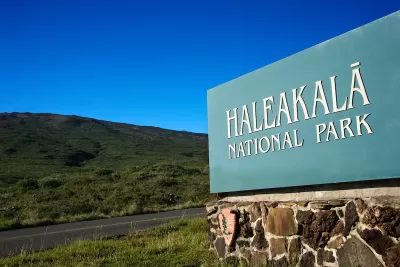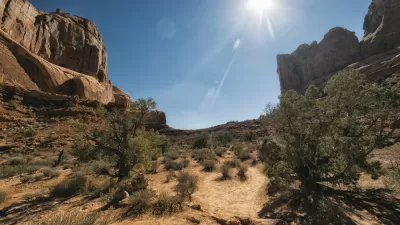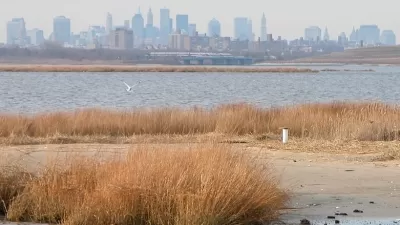University of Hawaiʻi researchers are using advanced remote sensing technologies to protect cultural resources in five Hawaiʻi national parks from climate change impacts while training students in cutting-edge environmental science techniques.

University of Hawaiʻi researchers are leading an innovative project to protect five coastal national parks in Hawaiʻi from climate change threats such as sea level rise, storm surges, flooding, and erosion. The initiative, funded by a $1.15 million National Park Service (NPS) grant, focuses on cultural resource preservation using high-resolution digital tools. Professors Ryan Perroy from UH Hilo and Seth Quintus from UH Mānoa are co-principal investigators, leveraging advanced technologies to document and assess cultural sites across parks like Haleakalā, Kalaupapa, and Puʻuhonua o Honaunau. The study aims to enhance resilience modeling and adaptation planning to safeguard these critical heritage sites.
The research team employs cutting-edge remote sensing techniques, including drone and helicopter-mounted imaging, to collect precise data from extensive and hard-to-reach areas. These tools allow for efficient surveying of nearshore and flood-prone regions, producing high-resolution digital documentation for resource monitoring. The project builds on previous documentation efforts by the NPS and will support the development of condition assessment protocols. Perroy, an expert in aerial robotics and geospatial analysis, oversees the spatial data analysis lab at UH Hilo, which plays a pivotal role in addressing environmental challenges in Hawaiʻi and the Pacific.
In addition to resource preservation, the project emphasizes education and training by involving four students—two each from UH Hilo and UH Mānoa. These students will gain hands-on experience in advanced remote sensing, including data collection, processing, and analysis. The initiative not only contributes to cultural resource protection but also prepares future experts in environmental science and geospatial technologies, equipping them to tackle the impacts of climate change on vulnerable ecosystems and heritage sites.
FULL STORY: UH researchers help protect 5 Hawaiʻi national parks

Study: Maui’s Plan to Convert Vacation Rentals to Long-Term Housing Could Cause Nearly $1 Billion Economic Loss
The plan would reduce visitor accommodation by 25,% resulting in 1,900 jobs lost.

North Texas Transit Leaders Tout Benefits of TOD for Growing Region
At a summit focused on transit-oriented development, policymakers discussed how North Texas’ expanded light rail system can serve as a tool for economic growth.

Why Should We Subsidize Public Transportation?
Many public transit agencies face financial stress due to rising costs, declining fare revenue, and declining subsidies. Transit advocates must provide a strong business case for increasing public transit funding.

How Community Science Connects People, Parks, and Biodiversity
Community science engages people of all backgrounds in documenting local biodiversity, strengthening connections to nature, and contributing to global efforts like the City Nature Challenge to build a more inclusive and resilient future.

Alabama: Trump Terminates Settlements for Black Communities Harmed By Raw Sewage
Trump deemed the landmark civil rights agreement “illegal DEI and environmental justice policy.”

Dear Tesla Driver: “It’s not You, It’s Him.”
Amidst a booming bumper sticker industry, one writer offers solace to those asking, “Does this car make me look fascist?”
Urban Design for Planners 1: Software Tools
This six-course series explores essential urban design concepts using open source software and equips planners with the tools they need to participate fully in the urban design process.
Planning for Universal Design
Learn the tools for implementing Universal Design in planning regulations.
City of Santa Clarita
Ascent Environmental
Institute for Housing and Urban Development Studies (IHS)
City of Grandview
Harvard GSD Executive Education
Toledo-Lucas County Plan Commissions
Salt Lake City
NYU Wagner Graduate School of Public Service





























